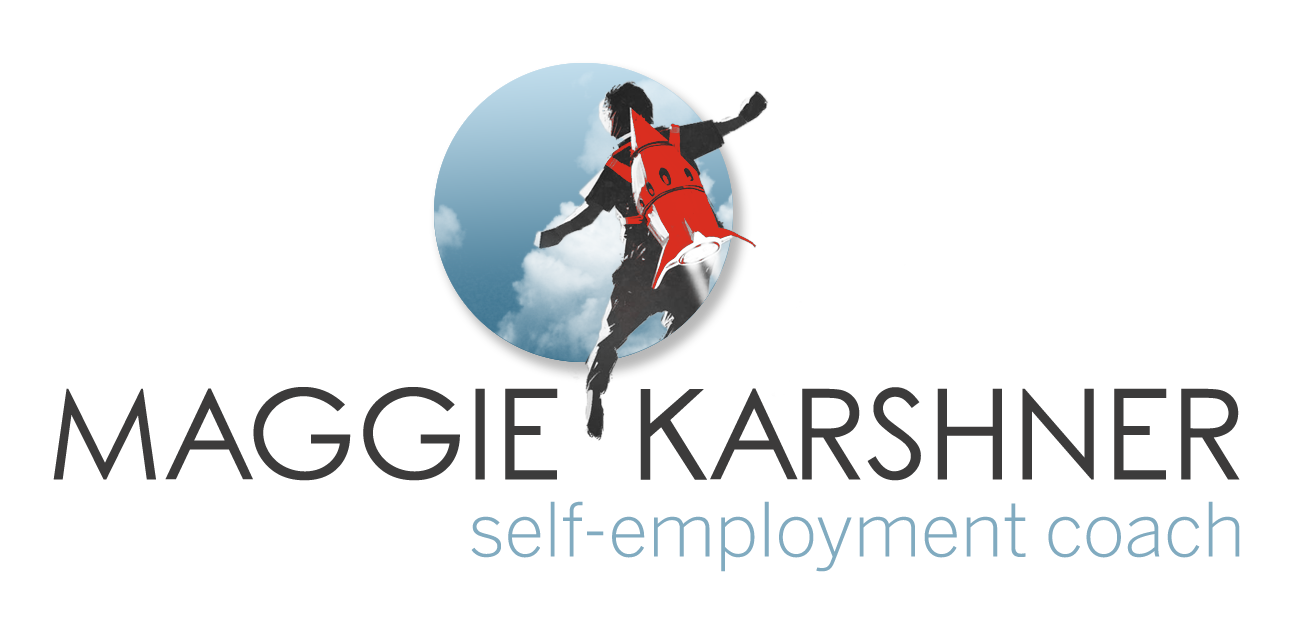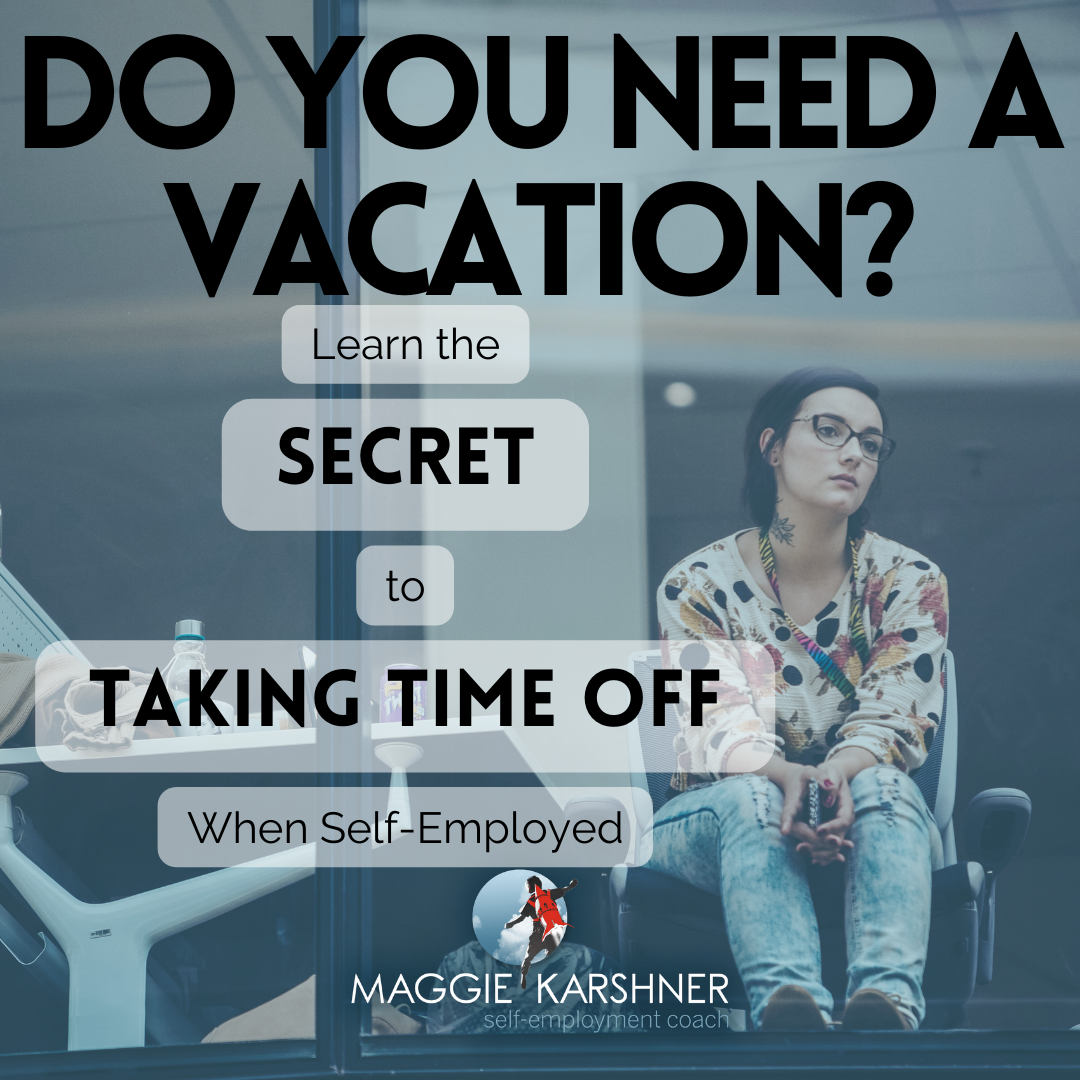Do You Need a Vacation? Learn the Secret to Taking Time Off When Self-Employed
/Can you believe it's already the end of August?! Time passes so fast! Hey, did you take a vacation this summer? If the answer is no, I understand. When you're self-employed it can be super hard to figure out how to go on vacation. It can feel like you're risking the health of your business. And at the very least you're losing income for the time you're away.
While this summer might be coming to a close, this is the perfect time to make a plan. Get started now to ensure you'll have a vacation next summer. (Or, whenever you prefer to take your vacations!)
Why is vacation important?
We self-employed folks are often quite passionate about what we do. We enjoy our work. It can seem like a vacation would be unnecessary. But even for those of us who love our work, there's more to our lives than work. We need time to see family, enjoy a change of pace, and experience new cultures. Not to mention rest.
Rest is the most revolutionary and luxurious act you can participate in. Spit in the face of capitalism by not earning money for a minute. Or show off your opulence by taking time to travel the world. Or whatever else motivates you. Time away from work is good for being a healthy, well-rounded person and for living your best life.
Hopefully, I've reminded you of how much fun a vacation can be. So let's get into the nitty-gritty of how you achieve it.
How?
In employed life, we save up vacation time (if we have it) and money, then ask for time off and buy plane tickets. Some of this is similar and some of it isn't. You'll still need to buy plane tickets, but you won't need to ask for time off. And the money side can feel a lot more complicated.
Vacation Time
For most self-employed businesses your time is the only source of revenue. This means that if you take two weeks off, your business will lose two weeks of revenue. But vacation isn't the only reason your revenue might falter. You could get sick and be non-functional for two weeks. Or, your business might just hit a lull and you find yourself scraping by.
The point is, that your business needs an emergency/vacation fund. Let's call this a buffer fund. You create this by setting aside a portion of your operating expenses and/or profit when things are good. This way you'll have money to use when you need to take off, or just to help level the highs and lows of being in business. If you've got an account with 3 to 6 months of operating expenses and owner's pay, you're in a good place! (Do NOT conflate this account with your tax savings account. If you want to co-mingle the funds, fine. But know which part is for taxes and which part is your buffer fund. ...and these numbers are always changing, so maybe have separate accounts?! I promise the banks won't mind.)
When?
Creating that buffer fund will take time. You'll need to have a series of good months in order to fund it. This is super hard to do when you're just getting started. But a year or three in, you should definitely be able to take a proper vacation. And a small trip or stay-cation is totally reasonable even in your first year.
The first time you leave your business can feel nerve-wracking. I recommend you set yourself up for success by picking a time of year that makes sense for your industry. This means you need to pick a time that's already fairly quiet.
For example, you could try and work between Christmas and New Year. But I can tell you from first-hand experience that not a lot gets done at that time. In my first year in business, I decided to work through it. But the majority of my clients opted to not have a session. My schedule was super light, yet not devoid of sessions. And then when someone inevitably canceled, I was frustrated that I couldn't have just taken that time off from the start. It wasn't great for me, and that wasn't great for my clients.
Learning from that lesson, the next year I took my first-ever vacation over the last two weeks of December. And by "vacation" I do mean that I sat at home and did nothing, but it was glorious!
Many businesses have the Christmas-to-New Year quiet time. But if you're in retail or retail adjacent, that might not be the case at all. So pick a time that feels easy. A time when you can anticipate things will be quieter than usual.
Backup
This brings me to the notion of having some backup. I've written previously about using an Email Sabbatical when going on vacation. While that is an AWESOME solution, there are instances where this isn't quite enough. If you're in an industry like real estate, then your clients might expect you to be available. And even if that's not the case, it's not fun to have to deal with a mountain of emails upon your return! Anticipate this and think of solutions.
Seek out someone in your own industry (e.g. "the competition") who might be open to serving as backup while you're away. This person should meet two criteria: (1) you respect their work/service and (2) you've built trust with them. Sourcing your backup will take time. Start meeting "the competition" and seeking your backup person well before you take a vacation. Start this project as early as when you start building that buffer fund.
The relationship between you and your backup can look many different ways. In some industries it's reasonable to "exchange" being back up for each other. In some industries the person providing backup might want something more in return. They might keep the clients they support, or get a commission for the clients they work with in your absence. Talk with others in your industry to get a sense of what's familiar and fair. It's very uncommon to pay a backup person on an "on-call" basis. But really, the terms are whatever feels fair between you and your backup person!
Sometimes you don't even need a whole professional clone of yourself. Just someone who's familiar with your business to screen and sort calls and emails. This kind of support can work wonders for many. It also REALLY reduces the mountain of emails upon your return! (Provided you didn't just Email Sabbatical it!) Plus it gives you some peace of mind if you know your screener will reach out to you for something truly urgent.
This is a great role for a virtual assistant (VA). Virtual assistants are typically not brought on just for two weeks, but there are some who work that way. Let me encourage you to consider having a VA work on your email triaging all the time. This gives you more time, even when you're not on vacation. Plus, having your VA screen all the time, means you're familiar with their efficacy. This gives you confidence and peace of mind while you're away.
Money for the Trip
Saving up for the actual vacation expenses is very similar to how you'd do so when you were employed. Whatever mechanism in your personal finances allows you to afford plan tickets... leverage that! If you set aside monthly in a way that works for you in your personal accounts, then do that! Some of you might be more used to funding trips from bonuses or windfalls. If this is the case, leverage your annual/semi-annual profit draw from your business as your vacation fund. (For more on setting up an annual/semi-annual profit draw, check out Profit First by Mike Michalowicz.)
Very Do-Able
As with everything in self-employment, there are more moving pieces and more complexity. But you also get more control over all the aspects of the process. When you're making the sausage, it's a lot of steps, but you get to decide on every ingredient in that sausage so it can be perfect for you. It's the same with your business. You get to decide how to set up your systems so that you can have the most perfect vacations for you and your business!
Need some individualized support? Sign up for an Initial Consultation Session to find out if coaching would be helpful for you!





